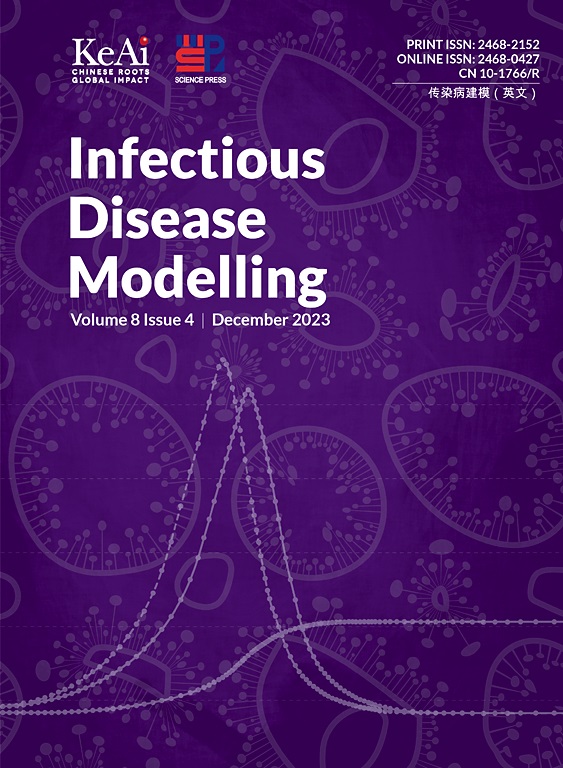针对血吸虫的阶段特异性免疫反应可以解释疟疾-血吸虫共感染研究中相互矛盾的结果
IF 2.5
3区 医学
Q1 Medicine
引用次数: 0
摘要
就发病率和死亡率而言,疟疾和血吸虫病是临床上最重要的两种人类寄生虫病,每年共造成约80万人死亡。与它们的致病寄生虫,疟原虫和血吸虫的共同感染是常见的,特别是在撒哈拉以南非洲。这些寄生虫可能通过它们对宿主免疫系统的影响而相互作用,但迄今为止的研究报告了这种相互作用的相互矛盾的后果,一些研究表明血吸虫与疟疾感染中寄生虫血症的减少有关,而另一些研究则报告了寄生虫血症的增加。血吸虫在感染早期和晚期刺激不同的免疫成分。使用基于主体的模型,我们探索感染阶段是否可能是解释相互冲突的共同感染结果的一个因素。根据每个血吸虫阶段引起的反应,通过调整模型内的免疫成分来模拟血吸虫对血期疟疾的影响。我们发现疟疾感染的动态很大程度上受到血吸虫阶段的影响,急性和慢性血吸虫感染对感染红细胞计数峰值和持续时间都有相反的影响。我们的发现为研究之间的明显矛盾提供了可能的解释,并强调了在探索这两种寄生虫之间的关系时考虑血吸虫感染阶段的重要性。本文章由计算机程序翻译,如有差异,请以英文原文为准。
Stage specific immune responses to schistosomes may explain conflicting results in malaria-schistosome coinfection studies
Malaria and schistosomiasis are two of the most clinically important human parasitic diseases in terms of morbidity and mortality, collectively causing approximately 800,000 deaths annually. Coinfection with their causative parasites, Plasmodium spp. and Schistosoma spp., is common, particularly in sub-Saharan Africa. These parasites may interact with each other via their effects on the host immune system, but studies to date report conflicting consequences of such interactions, some suggesting that schistosomes are associated with reduced parasitaemia in malaria infection while others report increased parasitaemia. Schistosomes stimulate different immune components in early versus late infection. Using agent-based modelling we explore whether stage of infection could be a factor explaining the conflicting coinfection outcomes. Effects of schistosomes on blood stage malaria were modelled by adjusting the immune components within the model according to the response provoked by each schistosome stage. We find the dynamics of malaria infections are greatly influenced by the stage of schistosomes, with acute and chronic schistosome infections having opposite effects on both peak infected erythrocyte counts and duration. Our findings offer a possible explanation for the apparent contradictions between studies and highlight the importance of considering the stage of schistosome infection when exploring the relationship between these two parasites.
求助全文
通过发布文献求助,成功后即可免费获取论文全文。
去求助
来源期刊

Infectious Disease Modelling
Mathematics-Applied Mathematics
CiteScore
17.00
自引率
3.40%
发文量
73
审稿时长
17 weeks
期刊介绍:
Infectious Disease Modelling is an open access journal that undergoes peer-review. Its main objective is to facilitate research that combines mathematical modelling, retrieval and analysis of infection disease data, and public health decision support. The journal actively encourages original research that improves this interface, as well as review articles that highlight innovative methodologies relevant to data collection, informatics, and policy making in the field of public health.
 求助内容:
求助内容: 应助结果提醒方式:
应助结果提醒方式:


